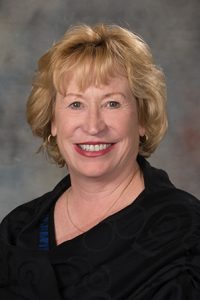Bill would allow tax benefits for K-12 tuition
Nebraska educational savings plan trust accounts could be used to pay private elementary and high school tuition under a bill heard March 4 by the Revenue Committee.
The trust provides tax-advantaged 529 accounts meant to encourage saving for postsecondary education. Contributions grow tax-deferred and are exempt from state and federal taxes as long as they are used for a beneficiary’s qualified higher education expenses.
Individuals may claim a state income tax deduction equal to contributions they make to an account, up to $5,000 for those married filing separately and $10,000 for other filers.
Under LB681, introduced by Elkhorn Sen. Lou Ann Linehan, owners could use their accounts to pay for qualified expenses at eligible postsecondary educational institutions and up to $10,000 in elementary and secondary school tuition per beneficiary per taxable year.
Linehan said 38 states and the District of Columbia allow 529 accounts to be used for elementary and secondary education after a federal tax change in 2017. She said Nebraska should join those states, partly to attract young parents, who are using 529 accounts to save for their children’s education more than previous generations.
Linehan said the proposal is not intended to divert funding from public education.
“LB681 does not hurt public schools,” she said. “This is about families making choices with their money for their kids.”
The state Department of Revenue estimates that the bill would reduce general fund revenue by $2.4 million in fiscal year 2021-22, $5.2 million in FY2022-23 and $8.1 million in FY2023-24.
State Treasurer John Murante testified in support of the proposal. He said it would encourage more people who want to use a 529 account to save for K-12 private school tuition to use Nebraska’s plan rather than another state’s.
“Nebraskans can invest in any program in the entire country,” Murante said. “The more we put limitations on what our account holders can spend their money on, the more of a competitive disadvantage we are at.”
Jeremy Ekeler testified in support of the bill on behalf of the Nebraska Catholic Conference. Ekeler said families who choose to send their children to private school must pay taxes to their local public school district in addition to tuition. LB681 would be a small step toward reducing that financial penalty, he said.
Ekeler said the bill also would help mitigate inequality of opportunity by helping low-income and middle-class families save for private school. He said approximately 1,400 students left Nebraska’s Catholic schools over the past year due to pandemic-related financial hardship.
“Often for those families it was a matter of filling a small gap in tuition that, despite historic giving by our dioceses, it just couldn’t happen,” Ekeler said.
Testifying in opposition to the bill was Renee Fry, executive director of OpenSky Policy Institute. Although many states have followed the federal government in allowing 529 accounts to be used for K-12 expenses, she said, only 23 of them offer a state tax benefit. Among those, Fry said, Nebraska’s would be the seventh most generous.
Fry said LB681 would enable families who already send their children to private school to benefit from an immediate tax reduction.
Because there is no requirement that contributions remain in a NEST account for any length of time, she said, account owners could put money into an account and then withdraw it soon after to pay for tuition. Someone contributing $10,000 would receive a $684 tax deduction if they pay taxes at the top personal income tax rate, Fry said.
“I absolutely have talked to people who’ve said that’s exactly what they would do,” she said, “and I do believe that that would be done quite a bit.”
Daniel Russell, deputy director of Stand for Schools, also testified in opposition. He said LB681 primarily would benefit families who already can afford to send their children to private school and reduce general fund revenue that could be used to pay for public education, health and safety.
The committee took no immediate action on the bill.

